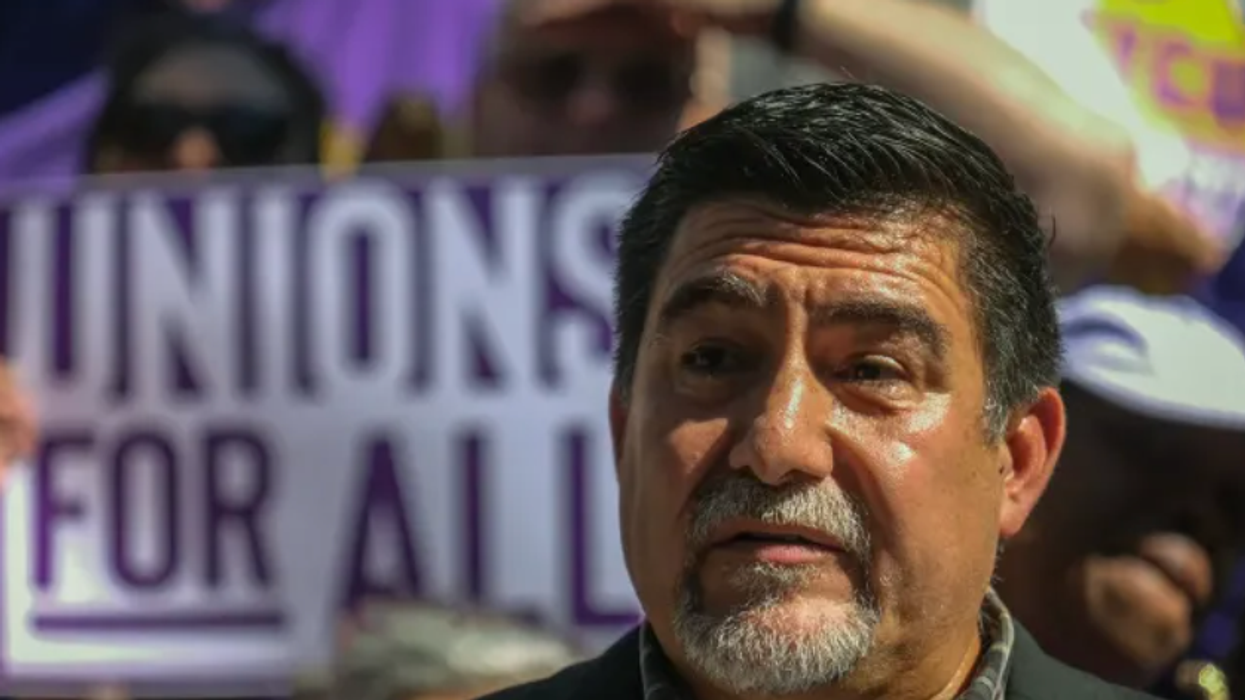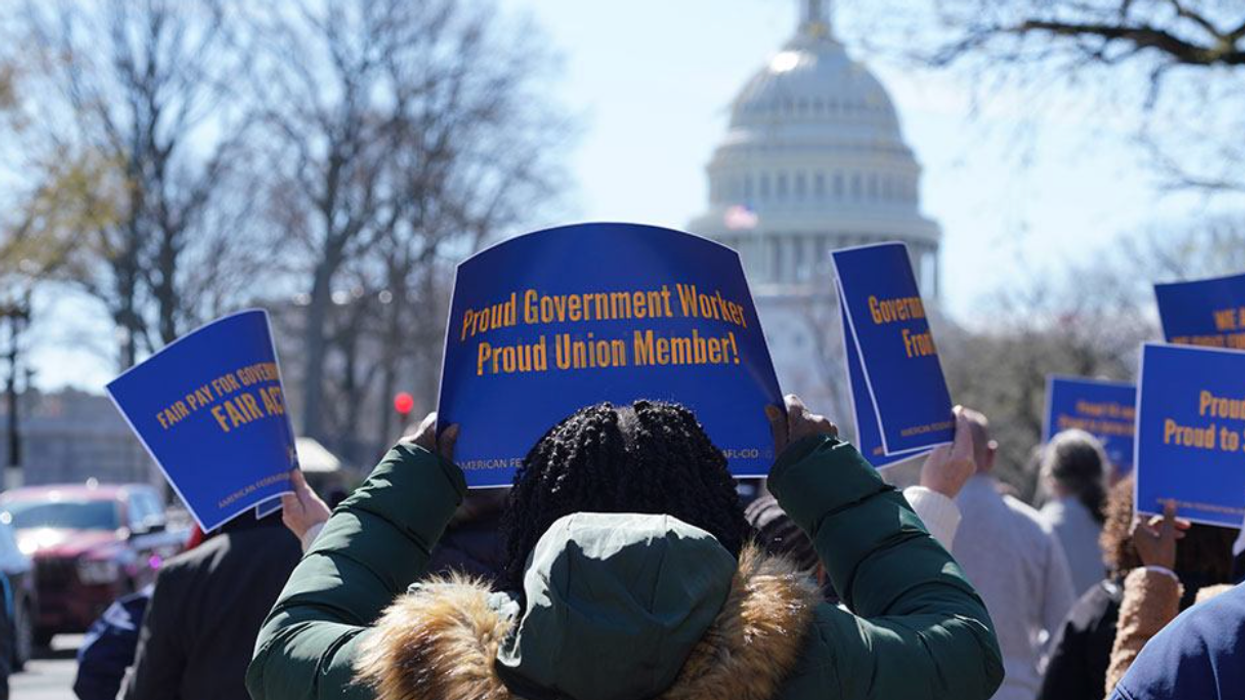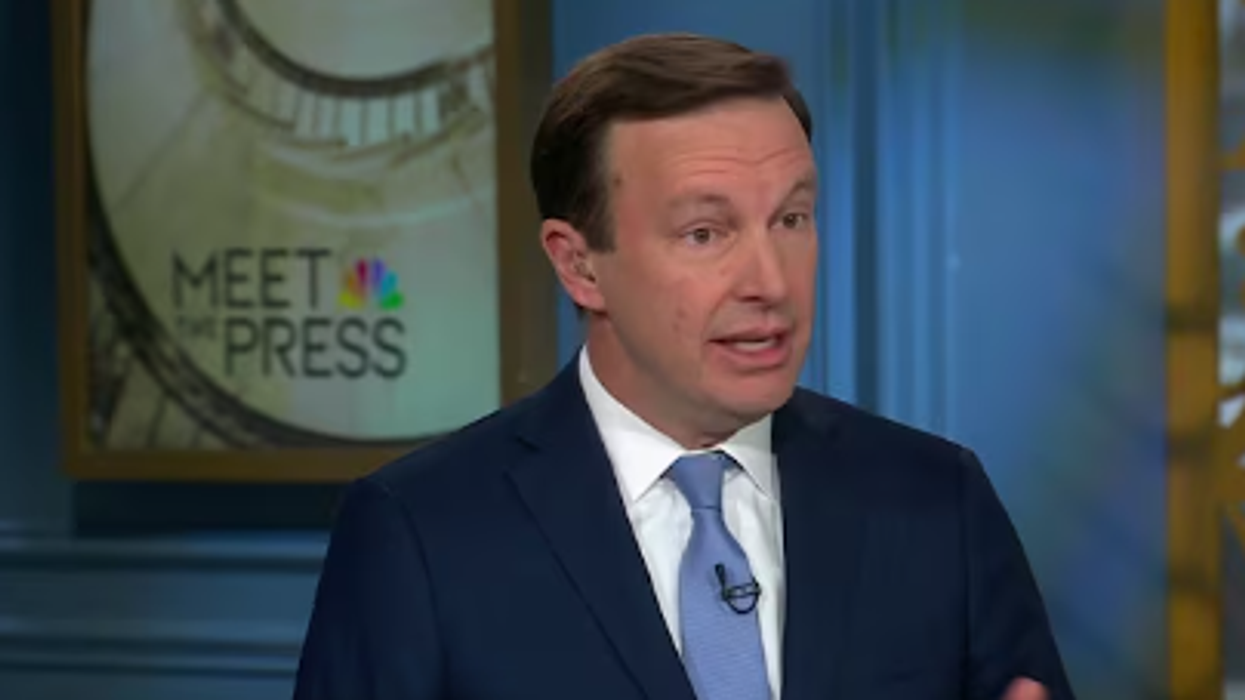Labor Movement Enraged By ICE Arrest Of California SEIU Chief
Unions across the United States have been rallying against the detainment of California labor leader David Huerta, who was arrested at an immigration protest on June 6 and released Monday afternoon on a $50,000 bond.
UPDATE: David Huerta was just released from custody!
— SEIU California (@seiuca.bsky.social) June 9, 2025 at 10:50 PM
[image or embed]
Huerta, president of Service Employees International Union California was injured during the arrest and charged on Monday for purportedly impeding Immigration and Customs Enforcement officers.
The Trump administration triggered protests by rounding up immigrants in the Los Angeles area in an effort to increase its deportation numbers.
“What happened to me is not about me; This is about something much bigger. This is about how we as a community stand together and resist the injustice that’s happening,” Huerta wrote in a statement on June 6. “Hard-working people, and members of our family and our community, are being treated like criminals. We all collectively have to object to this madness because this is not justice. This is injustice. And we all have to stand on the right side of justice.”
The Trump administration’s decision to arrest and charge Huerta is serving as a rallying point for labor unions, immigrants, and minority communities that are being targeted.
“They have woke us up,” Tia Orr, executive director of SEIU California, told the Los Angeles Times.
With more than 750,000 members, SEIU California called for Huerta’s immediate release during a rally in downtown Los Angeles Monday. Similar rallies also occurred in Washington, D.C., Seattle, Boston, and Chicago.
Other unions lent their voices to the cause, too.
“The nearly 15 million working people of the AFL-CIO and our affiliated unions demand the immediate release of California Federation of Labor Unions Vice President and SEIU California and SEIU-USWW President David Huerta,” the AFL-CIO wrote in a release on June 7.
Lee Saunders, president of the American Federation of State, County and Municipal Employees, accused ICE agents of violating Huerta’s First Amendment rights by arresting him in the first place.
“AFSCME stands in unwavering solidarity with our union brother David Huerta. We demand his immediate release, and we will not be silent until justice is done,” Saunders wrote in a statement on June 8.
The arrest was also condemned by lawmakers like House Minority Leader Hakeem Jeffries, who, in a statement released Sunday, said that the arrest of Huerta was “unacceptable.”
“This is the United States of America and we will not be intimidated by a wannabe dictator in the executive branch,” Jeffries wrote in a statement on June 8.
President Donald Trump spent much of the weekend attempting to escalate the situation in Los Angeles, particularly by deploying National Guard troops to the area over the objections of California Gov. Gavin Newsom and Los Angeles Mayor Karen Bass.
Trump and his border czar Tom Homan also promoted the idea of arresting Democratic leaders for opposing the Trump administration’s mass deportations.
In addition to vocal opposition from multiple unions and political leaders, other Democrats have criticized the escalating conflict created by the Trump team.
“Governors are the Commanders in Chief of their National Guard and the federal government activating them in their own borders without consulting or working with a state’s governor is ineffective and dangerous,” 22 Democratic governors wrote in a statement released on Monday.
“Further,” they continued, “threatening to send the U.S. Marines into American neighborhoods undermines the mission of our service members, erodes public trust, and shows the Trump administration does not trust local law enforcement.”
Reprinted with permission from Daily Kos.












